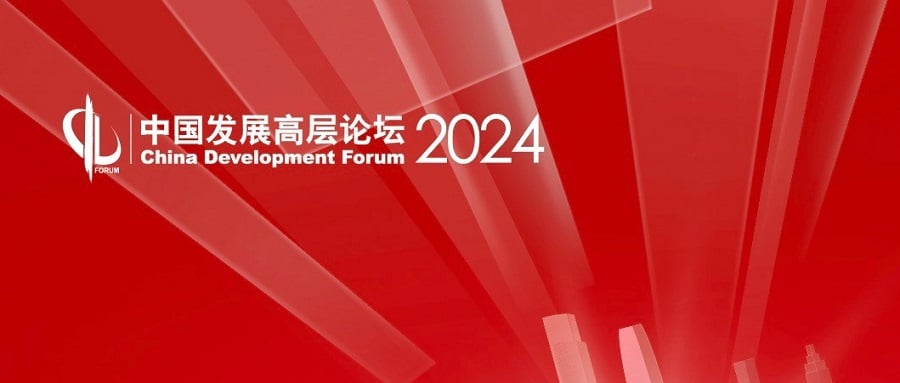Amid geopolitical tensions and a drop in foreign investments, China continues to encourage international companies to increase their Chinese footprint. At this week’s China Development Forum (CDF), CEOs from Pfizer, AstraZeneca, Bayer, Bristol Myers Squibb, GSK, Novartis, and Takeda made it clear that Big Pharma’s interest in the country has not waned.
I’m encouraged by opportunities to continue to expand the biopharmaceutical industry in China
Albert Bourla, CEO, Pfizer
Wooing Foreign Investments
Addressing some 100 global CEOs at the China Development Forum (CDF) in Beijing on March 24, the Chinese Premier Li Qiang said the country welcomes all those who wish to invest in China and broaden their Chinese footprint. The event, created in 2000 shortly before China became a member of the World Trade Organization, has set out to engage with the world to create “common prosperity.”
But with a long slump in the Chinese property sector leading to stock market slides last year and heightened geopolitical tensions as manifested through the US Biosecure Act, foreign direct investments have plunged. In the first two months of 2024 they descended by as much as twenty percent, a drop which is even worse than the 8 percent decline for the whole of last year.
Big Pharma, however, has maintained its interest in China, thanks to favourable government policies and a thriving local ecosystem. And with the participation of Pfizer, AstraZeneca, Bayer, Bristol Myers Squibb, GSK, Novartis, and Takeda in the health industry symposium held at the CDF, global life sciences companies made it clear that they have no intention of abandoning China’s UD 18 trillion economy and that opportunities continue to abound.
Encouraging Opportunities
Speaking at the symposium, Huang Guo, Deputy Director of the State Drug Administration, said, as reported by China News Service, that the country is determined to continue promoting reforms that will open it up to foreign investors and innovation. Among the measures China is already pursuing within the life sciences sector, Guo claimed, are its efforts to speed up drug review and approval by deepening the reform of its drug review and approval system.
According to the deputy director, China is also deepening international cooperation and exchanges, enhancing its partnerships with organizations such as the World Health Organization and joining the International Pharmaceutical Inspection Cooperation Scheme (PIC/S).
Participating pharma company leaders recognised the government’s push to advance foreign investment. Pfizer CEO Albert Bourla, as reported by qq.com, asserted that China is the firm’s second largest market after the United States, and that the Chinese government “has very strong policies in place to foster operations there.”
“I’m encouraged by opportunities to continue to expand the biopharmaceutical industry in China,” Bourla said in a parallel session organised by the Chinese Ministry. AstraZeneca CEO Pascal Soriot concurred, saying that he was “particularly inspired” by the prospect of developing new drugs in China.
For Bourla, China is a stable market where “the government’s policy environment in the pharmaceutical and health fields is very predictable, which provides Pfizer with a very clear business direction.” The Pfizer chief also claimed that the drugmaker hopes to boost cooperation with the Chinese government.
Ties with Local Companies
In addition, Bourla outlined the importance of the company’s partnerships in China, such as the strategic cooperation it signed last year with state-owned Sinopharm to seek approval for 12 new drugs in China through 2025, and its plans to continue to cooperate with the Chinese innovation ecosystem. “Pfizer hopes to establish close ties with Chinese scientific research institutions and the Chinese biopharmaceutical ecosystem,” he said. “I believe that within a few years, China will be at the forefront of biotechnology and biological innovation.”
IP Advancements
Novartis’ CEO Vasant Narasimhan commended China’s efforts to simplify regulatory processes, recognized the progress that has been made in recognizing intellectual property (IP) rights as an institutional guarantee for innovation, yet argued that the country still needs to strengthen the intellectual property protection system.
Narasimhan also recognized how China’s regulatory framework has matured, resulting in an increased number of clinical trials. “The total number of clinical trial registrations in China increased by more than 130 percent from 2017 to 2022,” he affirmed. However, in the Novartis chief’s view, “as advanced technologies continue to emerge, the continuous adjustment of the regulatory system and its integration with international standards will become crucial.”
Additionally, Narasimhan spoke of the access strides that have been made in China, claiming that “the number of new drugs launched and registered in China is second only to the United States,” but urged for further improvements with respect to access.
China as a Production Base
AstraZeneca’s Pascal Soriot spoke about the major investments the pharma giant is making in China, particularly for production facilities, including USD 475 million for a new small molecule factory and USD 700 million to produce its Breztri aerosol inhalant COPD treatment, which was recently added to the country’s National Reimbursement Drug List.
“In the past, our business in China was just sales, but now it has transformed into a very important part of the global business, and new drugs developed in China can be used around the world,” he said, asserting that AstraZeneca would look to export drugs to more than 80 countries and regions through China.
Photo credit: China Development Forum



